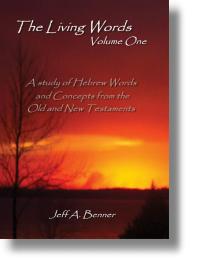Fear is an abstract concept, but the Hebrew words translated as "fear" have a more concrete definition behind them. The first root we will examine is פחד pahhad [H:6342].
Fear (pahhad - noun)) came upon me, and trembling, and caused all my bones to shake (pahhad - verb). Job 4:14
In this verse, the word "fear" is the noun פחד pahhad [H:6343] meaning "shaking," while the word "shake" is the verb פחד pahhad [H:6342] meaning "to shake."
The second Hebrew root is ירא yara [H:3372]. In the following verse, we will see that this verb means "fear" in the sense of what we would consider fear.
And he said, I heard your voice in the garden and I feared (yarah) because I was naked and I hid myself. Genesis 3:10
In the next verse, we see the same Hebrew word in a more positive context.
You will revere (yarah)Yahweh your Elohiym and you will serve him and in his name you will swear. Deuteronomy 6:13
Many would conclude from these two passages this Hebrew word has two different meanings, fear and reverence. This assumption is made with many Hebrew words, but this is caused by an understanding of the Hebrew vocabulary from a non-Hebraic perspective. Each Hebrew word has only one meaning but can have different applications. The literal concrete meaning of yara is a "flowing of the gut," which can be applied to "fear" or "reverence." Have you ever been so scared or been in the presence of something so amazing that you could feel it in your gut? This "feeling" is the meaning of this word. The Hebrews were a very emotional people, and in many cases their words are describing a "feeling," rather than an "action."
The fear (yirah) of the LORD is the beginning of wisdom: and the knowledge of the holy is understanding Proverbs 9:10 (KJV)
The word "fear" in the this verse is the noun יראה yirah [H:3374], derived from the verb yarah. The common understanding of this verse is if one is afraid of or in great awe of Yahweh, he will have wisdom, but as we shall see, this is not consistent with its use in the Hebrew language. The Hebrew for "fear of the LORD" (as found in the verse above) is written with two nouns, יהוה יראת yirat Yahweh (Yirat is a feminine noun ending with the letter ה, such as yirah, is used in the construct state, the ה is converted to a ת, in this case it becomes yirat.). When a noun precedes another noun, the first noun is in the construct state, meaning it is connected to the second noun-two words together forming one concept. An example of a construct noun can be found in the phrase אלהים מלכות malkut elohiym (kingdom of God)." Notice the first noun, "kingdom," belongs to the second noun, "God."
Below is a complete list of construct phrases from the book of Genesis where the second word in the construct is "Yahweh."
- The Word of Yahweh (Genesis 15:1)
- The Voice of Yahweh (Genesis 3:8)
- The Face of Yahweh (Genesis 4:16)
- The Name of Yahweh (Genesis 4:26)
- The Eyes of Yahweh (Genesis 6:8)
- The Garden of Yahweh (Genesis 13:10)
- The Angel of Yahweh (Genesis 16:7)
- The Way of Yahweh (Genesis 18:19)
- The Mount of Yahweh (Genesis 22:14)
You will notice in every instance the first word in the construct (word, voice, etc) belongs to the second word of the construct (Yahweh). So, why do we think the word "fear" in the construct phrase "fear of Yahweh" is "our" fear and not Yahweh's? We know God cannot "fear," but as pointed out previously, the Hebrew verb yara literally means "to flow out of the gut." Now the question becomes, "What flows out of the gut of Yahweh?"
Let's look at two other constructs, which will shed some light on what "the fear of Yahweh" might be.
But his delight is in the law of the LORD ; and in his law doth he meditate day and night Psalm 1:2 (KJV)
The Hebrew for "the law of the LORD" is יהוה תורת torat Yahweh. We previously defined the word תורה torah [H:8451] (Torat is the construct form of the feminine noun torah) as teachings. It is derived from the verb ירה yarah [H:3384] meaning "to throw" (in the sense of flowing) and is closely related to the verb yara which we are currently examining. Not only are they related in the sense both are from the same parent root, יר yar, but they are also related by definition.
The second construct is found in Judges 3:10.
And the Spirit of the LORD came upon him... (RSV)
In the construct יהוה רוח ru'ahh Yahweh we find the word ru'ahh, meaning wind (another type of "flowing"), which can also mean the character of an individual.
What flows out of the gut of Yahweh? His teachings and his character. Now, let's take another look at Proverbs 9:10, but this time from a Hebrew perspective.
The flowings (Yirah - the teachings (torah) and character (ru'ahh).) of Yahweh is the beginning of wisdom (Hhakhmah - the ability to distinguish between good and bad.): and an intimate relationship with the special one is understanding.

Like what you’re discovering? Continue the journey from Bible reader to translator.
|







